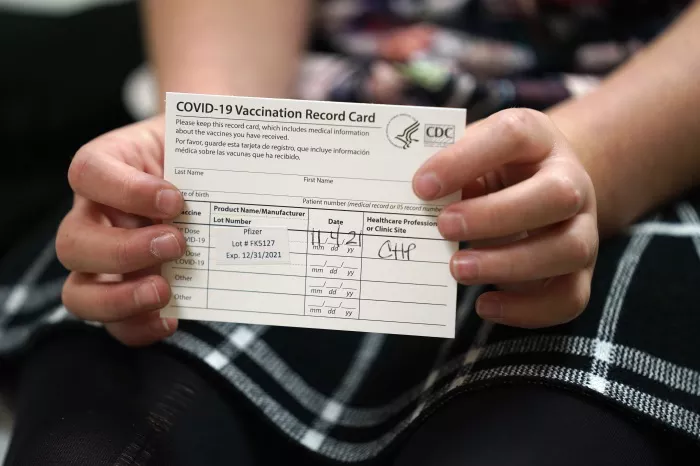Itchy eyes can be a pervasive and discomforting issue, affecting individuals due to various factors such as allergies, dryness, or environmental irritants. In this comprehensive guide, we delve into the intricacies of dealing with itchy eyes, exploring the causes, symptoms, and a range of effective strategies to alleviate discomfort and promote eye health.
Understanding Itchy Eyes
Before exploring remedies, it’s essential to understand the various causes and triggers of itchy eyes. Allergies, often to pollen, pet dander, or dust, are common culprits. Dry eye syndrome, a condition where the eyes lack sufficient lubrication, can also lead to itching. Environmental factors like smoke, pollution, or exposure to irritants can contribute to eye discomfort. Identifying the specific cause of itchy eyes is crucial for implementing targeted interventions.
Hygiene Practices
Maintaining good eye hygiene is a fundamental practice for individuals experiencing itchy eyes. Regularly washing the face and eyelids with a gentle, fragrance-free cleanser can help remove allergens and irritants that may contribute to eye itching. Avoiding the temptation to rub the eyes, which can worsen irritation, is essential. Using a clean, cool compress over closed eyes can provide soothing relief and reduce inflammation.
Artificial Tears
For individuals with itchy eyes due to dryness, artificial tears or lubricating eye drops can be a valuable solution. These over-the-counter products help replenish moisture in the eyes, reducing the sensation of dryness and relieving itching. It’s important to choose preservative-free artificial tears and follow the recommended usage guidelines. Regular use, especially in dry or windy environments, can help maintain eye comfort.
Allergy Management
Allergies are a common contributor to itchy eyes, and managing allergens is key to alleviating symptoms. Identifying specific allergens through testing can guide individuals in minimizing exposure. Implementing strategies such as using air purifiers, keeping windows closed during high pollen seasons, and regularly cleaning living spaces can reduce the presence of allergens. When outdoor allergen exposure is unavoidable, wearing sunglasses can provide a barrier to protect the eyes.
Cold Compresses
Cold compresses can offer immediate relief for itchy eyes by soothing inflammation and reducing itchiness. Applying a clean, cold compress over closed eyes for 10-15 minutes can constrict blood vessels, alleviating redness and discomfort. Individuals can use a cold pack wrapped in a thin cloth or chilled artificial tears for a refreshing effect. It’s crucial to avoid applying ice directly to the eyes to prevent injury.
Prescription Medications
In cases where itchy eyes persist or are severe, seeking professional medical intervention may be necessary. Eye doctors can prescribe antihistamine eye drops or other medications to address specific causes of itching, such as allergic reactions. Prescription eye drops can provide targeted relief and may be recommended for short-term or long-term use, depending on the underlying condition. Consulting with an eye care professional ensures a tailored approach to managing persistent eye itching.
Avoiding Allergenic Triggers
Making practical lifestyle adjustments to avoid allergenic triggers is essential for individuals with allergic causes of itchy eyes. This may include staying indoors during high pollen seasons, using high-efficiency particulate air (HEPA) filters in homes, and keeping pets out of sleeping areas to minimize exposure to pet dander. Creating an allergen-free sleep environment, such as using allergen-proof pillowcases and mattress covers, can contribute to better eye health.
Warm Compresses
In addition to cold compresses, warm compresses can be beneficial for individuals with itchy eyes. A warm compress helps stimulate tear production, improving eye lubrication and reducing dryness. Placing a clean, warm compress over closed eyes for 10-15 minutes can enhance the natural oils in the tear film, preventing evaporation and alleviating discomfort. Warm compresses are particularly helpful for individuals with meibomian gland dysfunction, a condition that affects the oil-producing glands in the eyelids.
Environmental Adjustments
Making adjustments to the immediate environment can contribute to creating eye-friendly spaces. Individuals with itchy eyes should consider minimizing exposure to smoke, strong odors, and other irritants. Using an air purifier in living and sleeping areas can help filter out airborne particles that may contribute to eye irritation. Creating a clean and well-ventilated environment supports overall eye health and reduces the likelihood of itching.
Proper Contact Lens Care
Contact lens wearers may experience itchy eyes due to factors such as dryness, allergens, or improper lens care. Ensuring proper contact lens hygiene, including regular cleaning and disinfecting, is crucial. Choosing preservative-free lubricating eye drops designed for contact lens wear can provide relief from dryness and irritation. Individuals experiencing persistent discomfort should consult with an eye care professional to assess lens fit and discuss potential adjustments.
Anti-Inflammatory Foods
Incorporating anti-inflammatory foods into the diet can support overall eye health and potentially reduce eye inflammation. Foods rich in omega-3 fatty acids, such as salmon, flaxseeds, and walnuts, have anti-inflammatory properties that may benefit individuals with itchy eyes. Antioxidant-rich fruits and vegetables, including berries, carrots, and leafy greens, can contribute to maintaining eye health. While dietary adjustments may not provide immediate relief, they play a role in long-term eye wellness.
Antihistamine Medications
For systemic relief of allergic itchy eyes, antihistamine medications taken orally may be recommended. These medications help block the effects of histamine, a chemical released during allergic reactions that contributes to itching and other symptoms. Over-the-counter and prescription antihistamines are available, and the choice depends on individual preferences and the severity of symptoms. It’s essential to follow dosage instructions and consult with a healthcare professional if considering long-term use.
Regular Eye Exams
Regular eye exams are crucial for monitoring and maintaining overall eye health, especially for individuals experiencing chronic or recurrent eye itching. Eye care professionals can assess the eyes, identify underlying conditions, and recommend appropriate interventions. Early detection of eye conditions allows for timely treatment, reducing the risk of complications and ensuring optimal eye comfort. Individuals with itchy eyes should schedule routine eye exams and communicate any concerns with their eye care provider.
Conclusion
In conclusion, addressing itchy eyes involves a combination of understanding the causes, implementing effective remedies, and making lifestyle adjustments. Whether opting for home remedies, over-the-counter solutions, or seeking professional medical intervention, individuals can empower themselves to manage and alleviate eye discomfort. The goal is to foster eye health, minimize irritation, and restore overall well-being. In the journey to soothe itchy eyes, knowledge and proactive self-care are powerful allies, contributing to a future of clearer, more comfortable vision.
[inline_related_posts title=”You Might Be Interested In” title_align=”left” style=”list” number=”6″ align=”none” ids=”3265,3158,3156″ by=”categories” orderby=”rand” order=”DESC” hide_thumb=”no” thumb_right=”no” views=”no” date=”yes” grid_columns=”2″ post_type=”” tax=””]
































